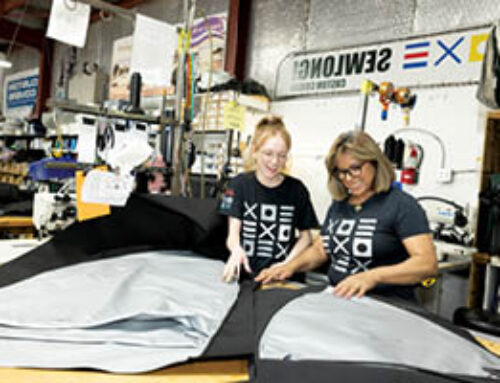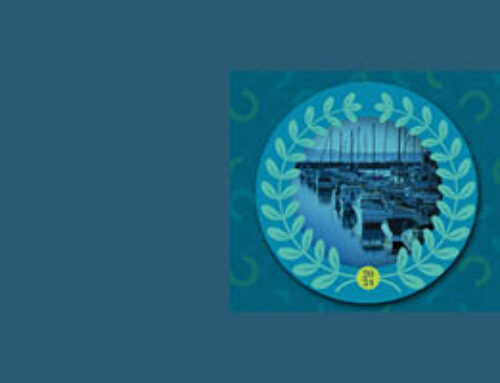Turn onetime gigs into long-term revenue streams
By Jeff Moravec
For many people, the so-called gig economy has created an entirely new way to make a living. The idea of side hustles may strike many fabricators as familiar—just with a new name. It’s not difficult to find fabricators who started a business with a narrow, well-defined specialty, only to find opportunities (sometimes intentionally, sometimes by happenstance) that have expanded the scope of their work. In some cases, one-off projects have turned into long-term specialties that have changed the very nature of their businesses.
Most find the changes have helped their businesses expand, but the gig economy is not without its challenges.

Add balance by diversifying
When Gary Cruikshank, Custom Upholstery and Awning Center LLC in Brainerd, Minn., took over the business from his father some 30 years ago, the company handled upholstery for boats, autos and furniture. Awning work—now about half his business—was not part of the repertoire.
“As I’ve always said, I didn’t start an awning business, the awning business started me,” says Cruikshank. Like many fabricators who have expanded their businesses, Cruikshank initially thought awning work might be just something of a side hustle.
“People kept coming in and saying, ‘Well, you made a boat cover for me, and we have these awnings on our house—can you make us new ones?’ Pretty soon someone else would say, ‘I hear you’re doing awnings; I could use some awnings.’ It was just a domino effect,” says Cruikshank.
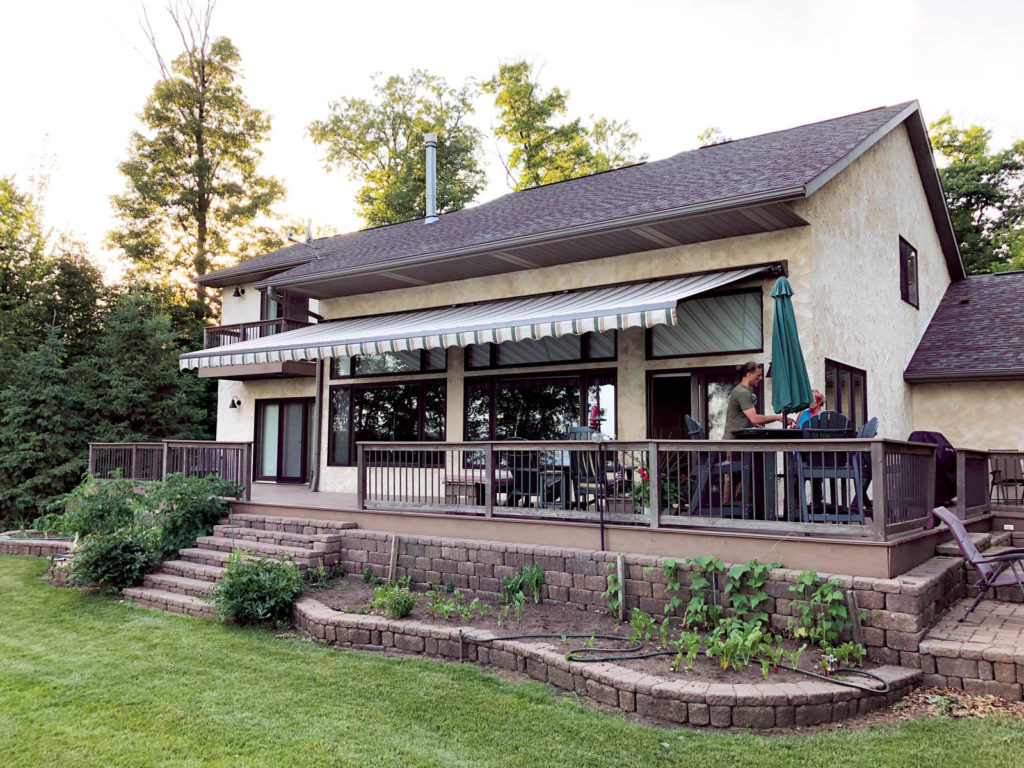
After five years of steady growth in awnings, Cruikshank hired sales reps just for awnings. Once he added awnings, expanding into other areas didn’t seem so daunting to him. In the years since, he has begun installing canvas covers for porch screens, power screens and other residential products. Branching out into a broader product line has taught him some lessons, says Cruikshank.
“The biggest basis for success in our business is this diversity,” he says. “We do so much today that when one part of the business isn’t real strong, something else will carry us through a slow time.”
That’s particularly true given the location of Cruikshank’s business in the often-frozen Minnesota north. “It’s hard to sell shade or awnings when it’s 20 degrees below zero,” he explains. “But that’s when we’re doing a lot of boat floors and upholstery—no one is using their boat because the water is frozen.
“It keeps the business very balanced,” he says.
Fake it ’til you make it
“I started sewing when I was 12 years old,” says Patricia Wallace, owner of Bear Paw Custom Design, in Portsmouth N.H. “I was of the generation that if you wanted something, you made it.” While Wallace didn’t envision fabrication as her life’s work, her childhood skills would eventually lead her in that direction.
Wallace spent years in the corporate environment as a controller, but when the company she worked for was shut down in a recession, her ability to sew came in handy.
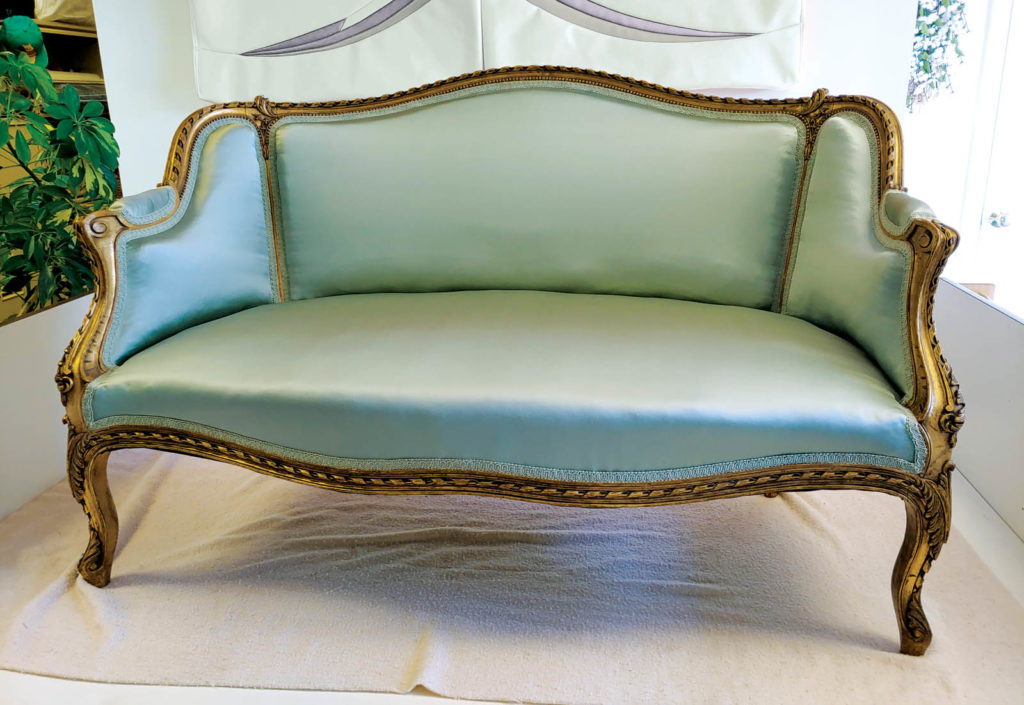
“We had a boat, and my husband said, ‘I want some work done; call the canvas guy.’ I said, ‘No, I’ll do it’ and I pulled out the sewing machine,” she explains. “The dockmaster saw me and said, ‘So-and-so needs boat work’ and then ‘Another so-and-so needs work,’ and it just kind of evolved.”
When she started, Wallace says, “I did a little bit of everything, because I did everything before I did marine canvas—the only difference was that marine canvas was just bigger. I’ve always had the basic principles of sewing; it was just a matter of applying it to different situations.”
Like Cruikshank, Wallace says her work expanded into new areas based on requests from customers. “I’d get asked to do drapes for a boat, and then drapes for a patio sliding door,” she says. “‘No problem,’ I’d say, but then think, ‘Oh, what did I just do?’ But I’d figure it out.”
It worked, she says, because she had developed a reputation for quality work. “I have clients who say, ‘I don’t care how long it takes, how long you’re scheduled out … I want you to do it.’
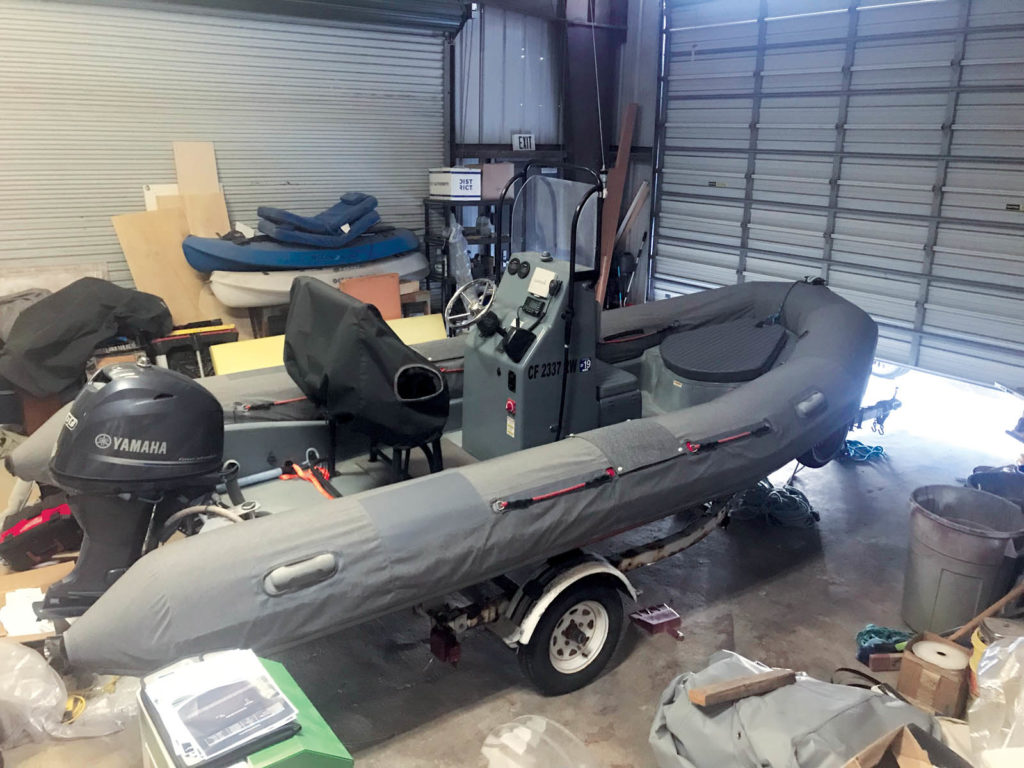
“The biggest issue I ever had,” adds Wallace, “was learning how to bend stainless steel. The first time it took me four hours, I was so afraid I was going to screw it up. But after a while, I could do it in 10 or 15 minutes.”
Fabricators thinking of expanding into new lines of business need to make sure they know all the basics, says Wallace. “Go to canvas school or whatever you need to do. If you know the basics, you can learn the finesse as you go along.”
Constantly seek new opportunities
When Stephan Kåmark’s work as a general contractor slowed down during the last recession, he decided it was time for a change. Since he’d grown up around boats, in 2014 Kåmark purchased Advanced Canvas and Upholstery Services, an existing marine fabrication business in Oxnard, Calif.
From the beginning, Kåmark thought there were plenty of opportunities to expand beyond the previous owner’s work: “There’s a lot of work fabricated by sewing out there,” he says. “It’s not just recreational boat work.”
Even if it leads him to challenging projects, “My motto is if we can fit it underneath our sewing machines or fabric welder, bring it in and we can do it,” says Kåmark. “Understanding different templating methods has opened multiple areas for us.
“We’ve designed marine windows for buses, as well as covers or parts for research vessels, prototypes for military uses, slide wire canopies, custom sun shades for amphitheaters and teak flooring,” says Kåmark. “It’s all about new ideas and spending time with research and development. The majority of the other shops [in the area] have been in the business for 20 years, but we’re creating our own reputation through diversity.
“We try to keep a fresh mind,” he says, “and we’re always looking for new opportunities.”
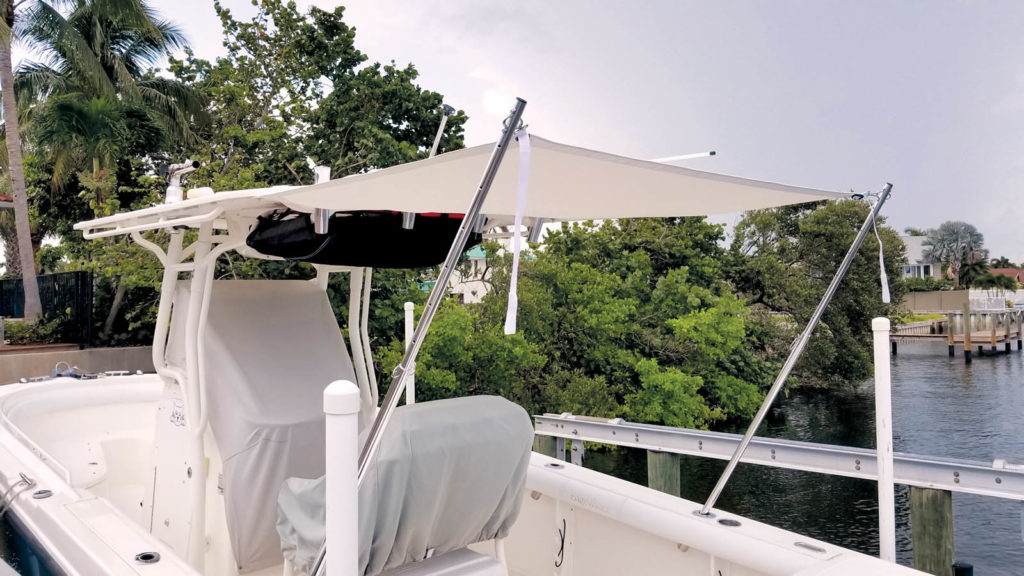
Expansion begets expansion
Chris Shuman of Custom Canvas and Cushions Inc., in Riviera Beach, Fla., says expanding into new lines of business is simple if you’ve developed a reputation for doing good work.
“We get asked if we can do all kinds of things,” he explains. “We’ve learned how to do things we never even dreamed about because we’re doing something else for a customer and they trust us and our workmanship. They feel confident doing business with us. That’s how you develop new skill sets.”
It’s often a matter of convenience for customers, according to Shuman, when they can hire one company to do the upholstery on a boat as well as covers and electronics. “It’s a huge convenience to be able to get everything taken care of in one shot,” he says. “If someone has to remove and reinstall electronics, it might as well be us.
“We’ve actually had to add a full-time electronics installer to the shop because we get so much call for that,” he explains. “Now we’re doing total rewires of boats, new electronics, new stereos, new lights—it’s great to be able to say, ‘We’re doing your cushions and covers; we can replace your stereo and lights too.’”
Expansion begets expansion, Shuman says. He’s working on a plan to move to a larger facility that will allow him to offer even more services. “I want to have a one-stop shop eventually,” he says. “Detailing, fiberglass and gel coat repair, outboard engine work, you name it—bring your boat and drop it off to get everything done at once.”
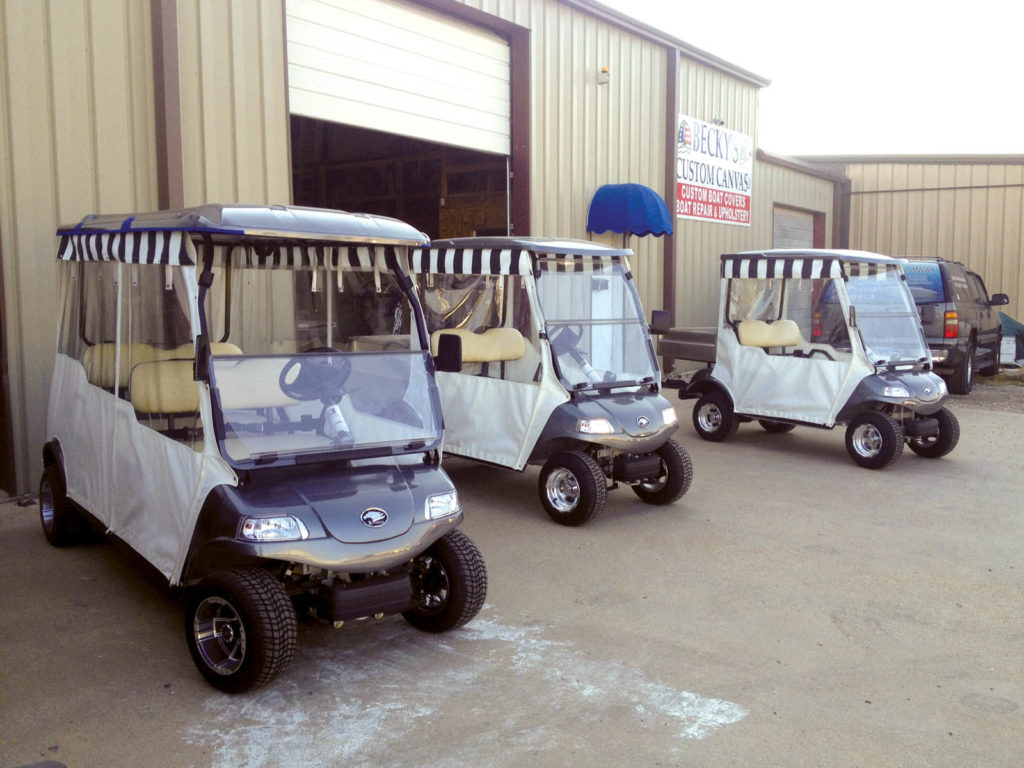
Thrive on unusual challenges
Gus Piccolo started as an awning installer and then as a salesperson at a fabrication business owned by the father of a friend. About 16 years ago, he took over the operation located in Royse City, Texas, and changed the name to Becky’s Custom Canvas. He knew all the existing customers, but he already had bigger ideas. “I decided to spread my wings,” he says. “Why go little when you can go big?”
Before long, Piccolo was designing and installing covers for patio furniture, automobiles and boats—even golf carts and dune buggies. “From boating to automotive and everything in between—there’s no project we can’t do to satisfy the customer,” he says. “We put ourselves in the customer’s shoes when it comes to designing what they want.”
An example? A local business that produces baking machines and conveyers for various baking companies needed a system to prevent bread crumbs from falling on the floor (where they would attract rodents). It sent patterns for “catch plans” to Piccolo, who designed a product made from 18-ounce vinyl. He now fabricates them for bakery manufacturers worldwide.
While it might not be the kind of project most fabricators would seek out, Piccolo says it’s the kind of thing that separates him from his competitors. “It was a big job but it was worth it,” he says. “Give me a challenge, and I can do it. I like challenges.”
Don’t stop educating yourself
While Tammy Hampton, owner of Cover Girl Marine Canvas & Upholstery in Buford, Ga., may have diversified her successful marine fabrication business by patenting and selling a line of specialty zippers, she quickly realized that how she was selling her product was just as important as what she was selling.
The how was online.
It all started when Hampton was working with a marine customer who said, “‘Can you make me one of those snappy things; my enclosure is not snapping to the windshield anymore,’” she explains. “I looked at it and thought, ‘It’s not really the snaps, it’s the zippers.’ I realized I was onto something.”
Thus was born Hampton’s line of EZ-Xtend Zippers. The zippers, which don’t require sewing, extend the canvas to its original position, she says, “and secures and fastens the boat cover in a way snap extenders never could.” The zippers also work for patio enclosures, Jeeps®, golf carts and tents.
Hampton sold the first zippers locally, but concluded that she could significantly expand the market for the zippers if she made them available online, so she dove into the world of e-commerce.
“It was a very big learning curve,” she says. “It wasn’t ‘Build it and they will come.’ I’ve invested a huge amount of effort educating myself in a way that drives traffic to my websites.”
As Hampton added more products to her online offerings, including an expansion of the EZ-Xtend line, she recognized that the world of online selling was anything but static. “It’s its own animal, and it’s constantly changing,” she says. “If you’re not up-to-date with what’s going on, you’re not going to be relevant, and you’ll be doomed to fail.”
While four of Hampton’s seven employees are devoted to the online portion of her business, Hampton says she believes it’s important for her to remain hands-on. “It’s like a fabricator who puts CAD in their shop,” she says. “If you don’t know how to do it yourself, you’re at the mercy of those you hire who do. You’re not the one who’s educated. If you diversify, make sure you’re the one who knows how to do it, and then train your employees.”
Hampton has also expanded her shop off the internet, sewing airplane covers and auto-related canvas for customers associated with the nearby Road Atlanta racetrack. “I’ll do anything that looks interesting to me,” she says. “And it has to be a good fit. If I don’t enjoy it, I don’t do it. Some work I don’t want to do, but some things I’m totally psyched to do.”
Jeff Moravec is a freelance writer from Minneapolis, Minn.
SIDEBAR: Quality and knowledge are key
Fabricators who want to expand into new lines of business can benefit from a wide-ranging skill set, but ultimately, it’s the quality of their work
that engages customers in that expansion.
“I have a pretty diverse background,” says Chris Shuman, who owns Custom Canvas and Cushions Inc. in Riviera Beach, Fla. “I was an auto mechanic for a while, I’ve done upholstery, I’ve done electrical work and wiring.
“As the conductor of the orchestra, you need to know a little bit about everything that you’re trying to expand into,” he says. “You need skilled
workers and the right crew doing the work, but if you’re in charge, you
need a little bit of knowledge or you could be left with all the responsibility and not have the answers.”
Getting the job done right also requires quality materials, and that’s what keeps customers coming back—as well as trusting a fabricator for different kinds of jobs.
“You have to stay on top of the industry,” says Gary Cruikshank, owner of Custom Upholstery and Awning Center LLC, in Brainerd, Minn. “I like to try to be more well-versed than anyone else, especially when it comes to knowing the right product for the right project.”
 TEXTILES.ORG
TEXTILES.ORG 


